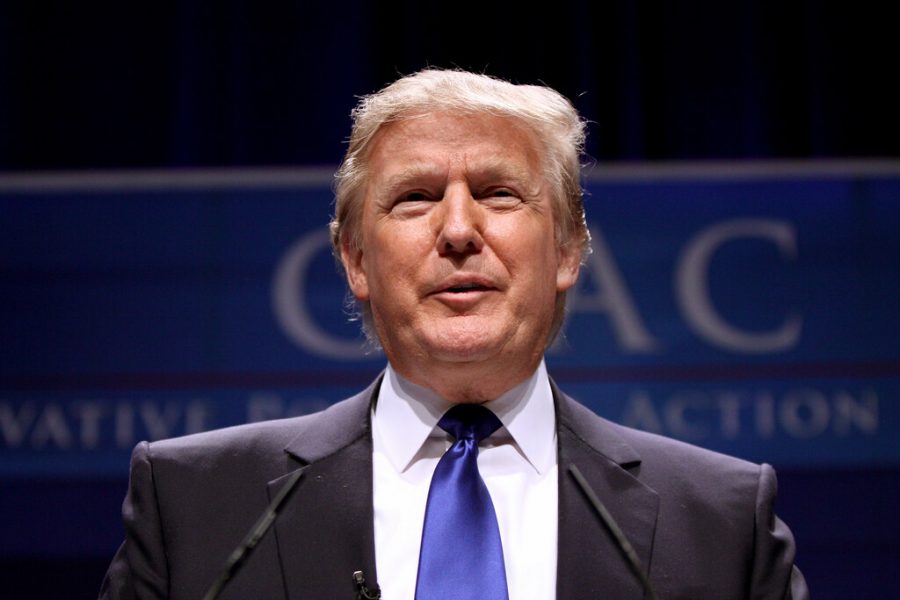Media by Gage Skidmore
President Donald Trump pushed his supporters to fight the election results that confirmed Joe Biden as winner of the presidential race. As this words instigated anarchy, social media platforms barred Trump from posting on their platforms indefinitely.
Editorial Board: Media Can Censor Inappropriate Speech
In the wake of the attack on the U.S. Capitol by President Donald Trump’s supporters, multiple social media platforms such as Twitter and Facebook have banned Trump’s accounts for inciting violence.
The suspension of Trump’s accounts on multiple platforms was not a suppression of speech, as many have said, so much as a suppression of dangerous misinformation.
Because social media platforms are private entities, they have the ability to censor any speech they deem inappropriate at any time. That said, it would be unethical for them to simply censor perspectives they disagree with or don’t like.
Trump has been sending out messages on his social media that many have found offensive for a long time, but social media platforms have continued to allow him to post because they couldn’t isolate his perspective just because it wasn’t agreeable.
But recently, with the spread of misinformation linked to Trump’s platform, which ultimately led to the violence that ensued at the Capitol last Wednesday, Jan. 6, he left them no choice.
Other members of the Republican Party, such as Sen. Josh Hawley from Missouri, have experienced criticism for allegedly emboldening those who participated in the attack.
Publication company Simon & Schuster canceled the publication of Hawley’s newest book, “The Tyranny of Big Tech.”
“As a publisher, it will always be our mission to amplify a variety of voices and viewpoints: at the same time we take seriously our larger public responsibility as citizens, and cannot support Senator Hawley after his role in what became a dangerous threat,” Simon & Schuster said in a statement.
Hawley responded by saying the company was violating his First Amendment rights. However, the First Amendment only protects citizens from the government impeding on freedom of speech, not corporations.
While Hawley is clearly looking to spread his message and make money, the same goes for corporations who must be ultra-selective about what messages they put out. Publishers and other companies have the right to publish or sell what they want. And although the First Amendment protects individuals from the government, individuals can still face consequences from their employers, or in the case of Hawley and Trump, the companies whose platforms they use to push out their message.
In the same way NFL players were allowed to kneel for the national anthem, senators and other public figures are allowed to express their views. However, just like the NFL players, these public figures are subject to the same criticism and punishment from their employers and businesses.
Another important point is that the internet and other mediums still allow people to express their opinions. Even if a public figure is banned from one platform, they can still express their voice on another or via press conference.
In the case of Hawley, he is still able to publish and sell his book online or through another publisher. He could even blog if he wanted to.
At the end of the day, Hawley and Trump’s continuous insinuations that Trump won the election made people truly think that he did, even after the electoral votes were counted and it was certified that Joe Biden had won. The messages Trump sent on social media had influenced millions of people, leading them to follow him with little proof actually supporting his claim.
He supported sedition, defined by Merriam-Webster as “incitement of resistance to or insurrection against lawful authority,” pushing people to fight against a verified and fair election.
In order to minimize the damage of false information spreading to news illiterate and impressionable audiences, the only solution is to stop those who spread it. While social media platforms value freedom of speech, they ultimately get to choose what people spread on their app, and rightfully use this ability to stop the harm that can come from instigations and false information.
These organizations have a duty, as organizations responsible for spreading information to millions of people, to prevent misinformation and messages on their platforms from causing harm, which is exactly what they did.

